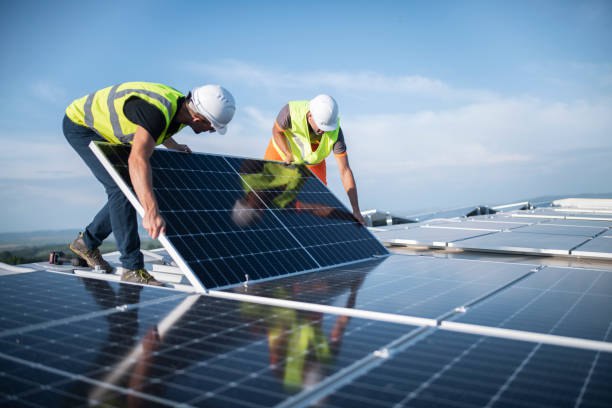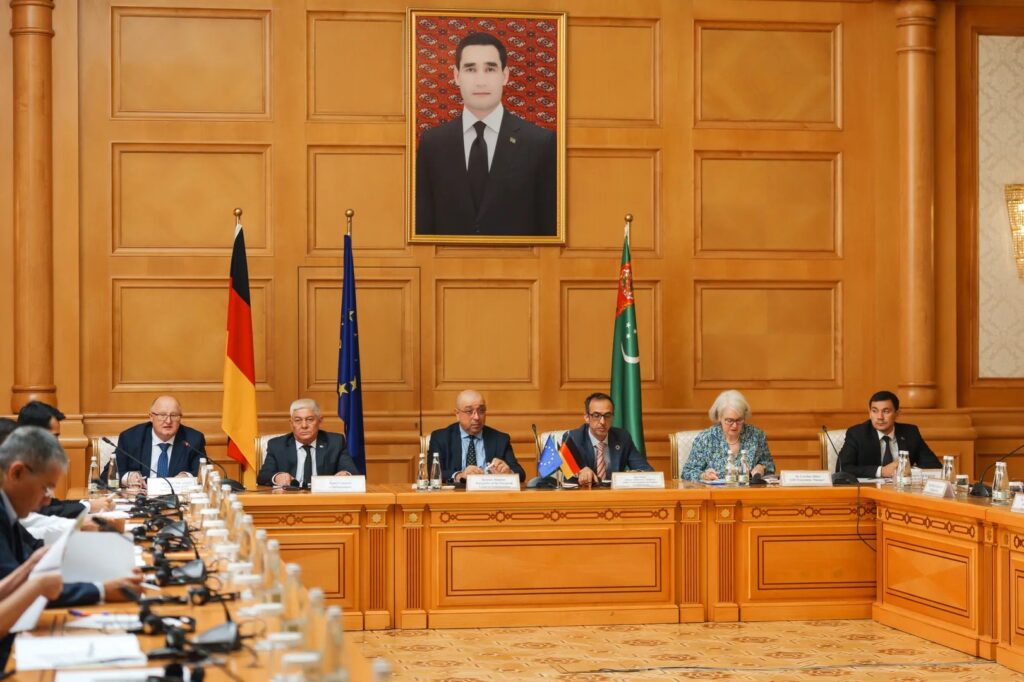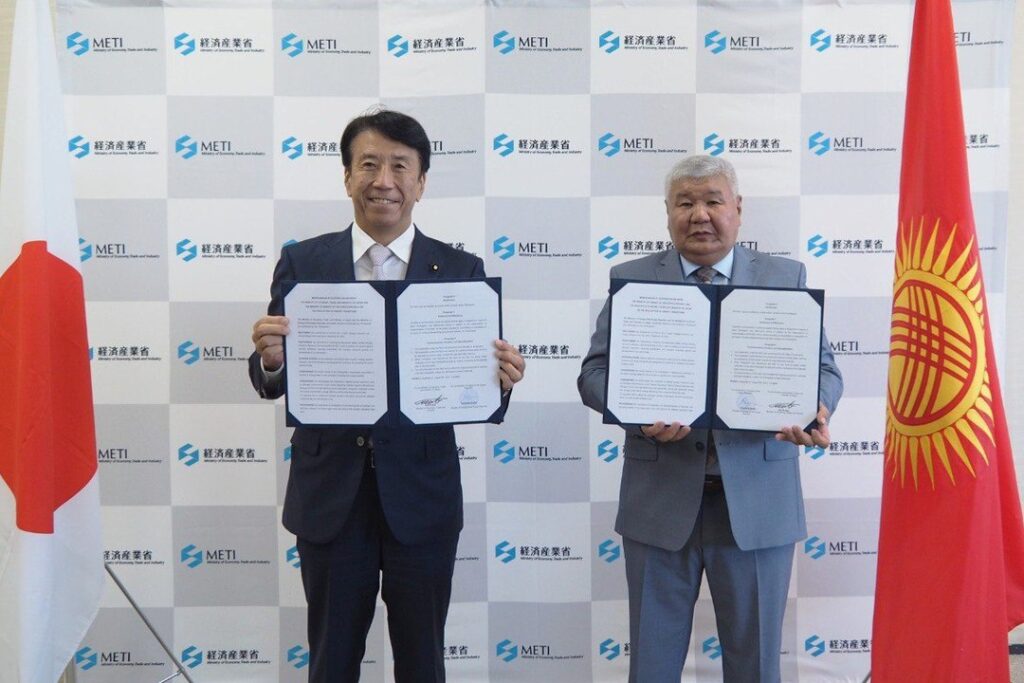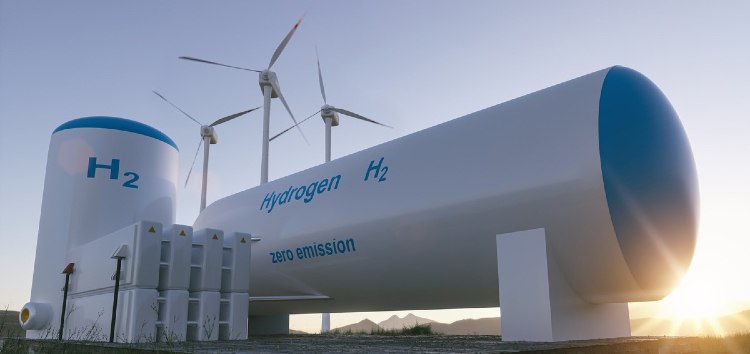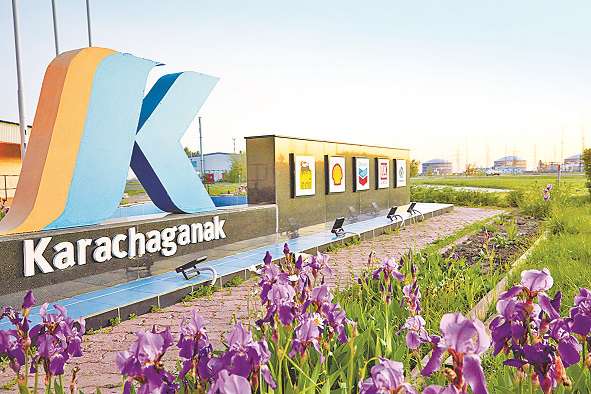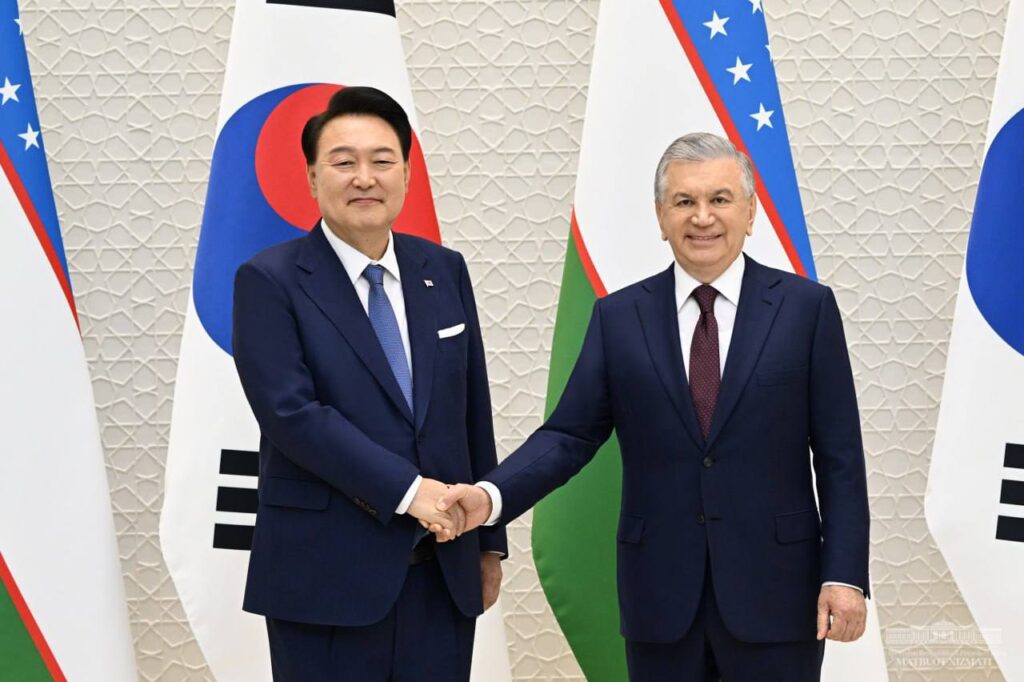Viewing results 1 - 6 of 40
The Chinese company China Datang is building a solar photovoltaic power plant in the Boka district of Tashkent region. Construction began on September 21. The 263-megawatt project is expected to cost $150 million to complete, and use 621 hectares of land. It was previously reported that China will invest 1 billion dollars in an enterprise processing the hides and organs of domestic animals in the Andijan region of Uzbekistan. In June this year, the UN General Assembly unanimously adopted the resolution “International Day of Dialogue among Civilizations,” developed by the China and Uzbekistan. The resolution's primary goal is to raise awareness about the value of civilizations' diversity and to develop communication, mutual respect, and global solidarity.
The European Union and Turkmenistan have officially launched a new project entitled “EU for Turkmenistan's Green Development: Policy Dialogue and Climate Action 2024-2028.” The project, funded by the EU and the German Ministry of Foreign Affairs, aims to support environmentally sustainable development in Turkmenistan using best practices and EU standards. The initiative will implement measures to promote renewable energy and energy efficiency, including reducing methane and greenhouse gas emissions. The project was launched in May 2024 following the signing of a Memorandum of Understanding and Cooperation between the Ministry of Energy of Turkmenistan, the State Concern Turkmengaz, and the German organization GIZ. This coincided with the 30th anniversary of diplomatic relations between the EU and Turkmenistan. The document emphasizes the importance of further cooperation in energy and climate policy. According to project manager Karolina Milov, the key focus will be creating an effective dialog between the EU and Turkmenistan's state structures to promote green energy. Strengthening the capacity of state institutions to develop climate change adaptation measures is also planned. The project includes two pilot areas that will demonstrate adaptation measures in renewable energy, methane emissions monitoring, and other environmental initiatives. These collaborative efforts are expected to mitigate the effects of climate change, both regionally and globally. Turkmenistan is actively developing green energy and technology initiatives. In recent years, the country has started launching several renewable energy projects. One of the key projects is constructing the country's first 10 MW hybrid wind-solar power plant in the Balkan province, creating a sustainable energy system for remote areas. Also, in 2022, an agreement was reached with Masdar from the UAE to build the country's first large-scale solar power plant with a capacity of 100 MW. In 2023, the government of Turkmenistan contracted a Turkish company to build a 1,574 MW power plant.
In Japan on September 9, Kyrgyzstan’s Minister of Energy, Taalaibek Ibrayev, met with Ken Saito, Japan's Minister of Economy, Trade and Industry, who oversees the country's energy policy. The two ministries signed a memorandum of cooperation to implement joint projects in green energy. The aim of the new partnership is to expand energy cooperation between Japan and Kyrgyzstan, and developing sectors such as energy efficiency, renewable energy, hydrogen energy, ammonia, carbon recycling, and high-efficiency electricity generation. While visiting Japan last November, Kyrgyzstan's President Sadyr Japarov held talks with Japanese Prime Minister Fumio Kishida. Cooperation in the energy sector was one of the issues that they discussed. During the visit, Japarov invited Japanese companies to use the opportunities and potential for cooperation with Kyrgyzstan to develop renewable energy sources and construct hydropower plants.
The European Bank for Reconstruction and Development (EBRD) will finance Central Asia's first renewable hydrogen production project in Uzbekistan. The project includes the installation of a 20 MW electrolyzer and constructing a new 52 MW wind farm. The EBRD is providing a $65 million (€58 million) financing package to ACWA Power UKS Green H2, which is developing, designing, constructing, and operating the facility. This company is jointly owned by ACWA Power and Uzkimyosanoat (UKS), a large state-owned chemical holding company. Financing includes a $55 million senior loan from the EBRD and $10 million in concessional financing from Canada through the High Impact Partnership on Climate Change Special Fund (HIPCA). The EBRD also plans to provide an equity bridge loan of up to $5.5 million (€4.9 million) and up to $5.5 million (€4.9 million) for the project. The project, supported by the Japan-EBRD Cooperation Fund, will help replace “grey” hydrogen, derived from natural gas and widely used in producing ammonia fertilizers in Uzbekistan, with renewable hydrogen. The latter is recognized as a critical alternative for decarbonizing the fertilizer sector. The facility is expected to make up to 3,000 tons of hydrogen annually, reducing annual CO2 emissions by 22,000 tons. The Bank also noted that Uzbekistan, the leading recipient of EBRD financing in Central Asia, has already received about €5 billion under 164 projects, most of which support private entrepreneurship. The Times of Central Asia has previously written that the Asian Development Bank (ADB) has announced the launch of a five-year partnership strategy with Uzbekistan from 2024 to 2028. The strategy will support Uzbekistan's reforms in promoting the country's transition to a green economy, supporting private sector development and competitiveness, and stimulating investment in economic capital.
Technip Energies NV, a French engineering and technology company in the energy sector, has entered into a five-year service agreement with Karachaganak Petroleum Operating B.V. (KPO) to develop the Karachaganak field in northwest Kazakhstan. According to representatives of Technip, the agreement covers a wide range of services, from consulting and conceptualization to detailed design of facilities and infrastructure. The project will be implemented through the joint venture TKJV LLP, created by Technip Energies in cooperation with the Kazakh company KPSP. Technip Energies is already engaged in projects in Kazakhstan, including the production of "green hydrogen" (Hyrasia One) and the construction of a gas processing plant at Kashagan. Earlier, Kazakhstan's energy minister, Almasadam Satkaliyev, announced the implementation of investment projects to expand Karachaganak. These projects are planned until 2028 and will maintain the production shelf at 11 million tons annually.
On 14 June, South Korean President Yoon Suk Yeol held talks with Uzbekistan President Shavkat Mirziyoyev. During their meeting in Tashkent, it was noted that the Republic of Korea is among Uzbekistan’s leading trade and investment partners. Last year, bilateral trade turnover reached $2.5 billion, and Korean investments in Uzbekistan now exceed $7.5 billion. Negotiations focused on the formation of a new, high-tech agenda for Uzbek-Korean strategic partnership over the next three years. As a result, the two leaders tasked their governments to prepare a Strategic Program for the creation of a regional high-tech hub in Uzbekistan, with priority given to the following “anchor” areas of the Strategy: Partnership on critical mineral resources with deep processing and creation of a complete added value chain. Strategic cooperation in the field of semiconductors, in which the Republic of Korea is recognized as a global leader, and the implementation of plans to create in Uzbekistan’s first fully-fledged research and production cluster of semiconductor products. Full-scale partnership in the chemical industry, including new projects to produce green hydrogen and ammonia, as well as finished rubber products. Deepening cooperation in mechanical engineering. This spring, an assembly line for KIA cars was launched in Uzbekistan’s Jizzakh region, to be followed next year, by a plant with the capacity to manufacture over 60 thousand vehicles per year. Transfer of technologies to develop “smart” agriculture, including via the digitalization of the agricultural sector, the introduction of “smart” and “green” technologies. Agreements have already been reached on the creation of modern greenhouses and garden complexes in Uzbekistan’s regions based on renewable energy sources. Infrastructure modernization and a program for urban development, based on the high interest of Korean banks and companies in the modernization of transport infrastructure, and the design and construction of residential and commercial real estate in Uzbekistan on the principles of public-private partnership. With regard to developing potential projects in green energy and increase energy efficiency, strategic dialogue is to be resumed between energy ministers and a meeting organized in Uzbekistan in the near future.
